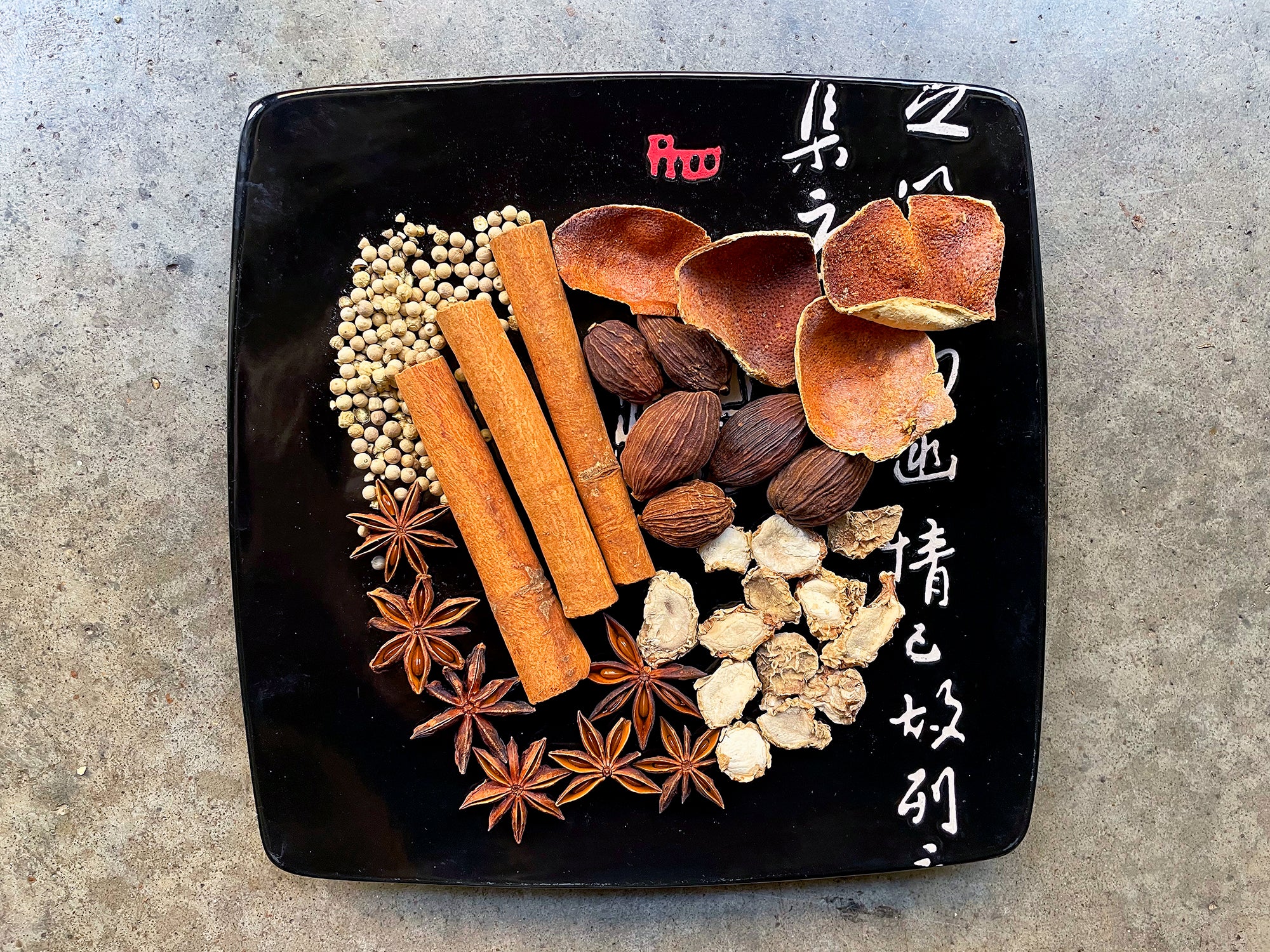|
Often translated as tangerine peel, chenpi is actually the peel of the mandarin, a small, slightly flat citrus native to China. The loose skin of the mandarin is the most valuable part of the fruit. It contains 24 kinds of volatile oil components and a high number of flavonoids (according to Baidu Wiki), making it desirable for both culinary and medicinal purposes.
Like many heritage products in China, Xinhui chenpi, or dried mandarin peel from Xinhui, has national geographical indication, officially honoring the district of Jiangmen city in Guangdong province as the maker of the most prized chenpi in China.
Dried mandarin peels are used to impart a bittersweet orange fragrance and flavor to braises and to a few famous dishes such as chenpi beef or duck, orange chicken, tangerine peel fried pork ribs and Cantonese stir-fried clams (recipes from our affiliates).
The mandarin peels are sun-dried and aged anywhere from 1 to 30 years, becoming darker, harder and sweeter over time. For Traditional Chinese Medicine, the older the peel the better, with the oldest commanding luxury-goods prices.
For our purposes here, which are first and foremost culinary, we have sourced an affordable 2-year-old Xinhui chenpi cut in large segments. Soak them in warm water to soften, for no more than 30 minutes, before use. Scrape the pith from the softened skin to remove bitterness.
If using chenpi in a braise, you might want to complement it with other aromatic and healing Chinese spices, as in photo at top.
|

